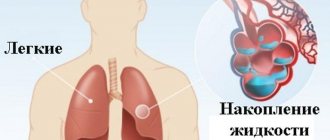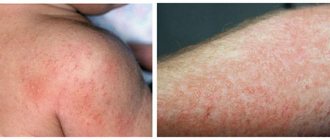Bitterness in the mouth may indicate problems with the digestive system. Severe or persistent bitterness in the mouth is a reason to consult a doctor.
From time to time you may experience an unpleasant bitter taste in your mouth. As a rule, this is due to a sudden release of bile into the gastrointestinal tract. In this case, some bile may enter the esophagus and cause a bitter sensation in the mouth.
. Often a bitter taste in the mouth is felt in the morning, since bile can enter the stomach during sleep (especially if you sleep on your left side and dinner included fatty foods).
Bile is a secretion produced by the liver and is necessary for digesting food. The bile duct carries bile from the liver to the gallbladder, which acts as a storage reservoir. During the active digestive phase, bile from the gallbladder enters the duodenum. Some substances have choleretic properties, that is, they increase the production of bile. Eating foods with choleretic properties (for example, pine nuts) can provoke a sharp increase in the flow of bile into the intestines and, as a result, the appearance of bitterness in the mouth. Some medications have the same effect - both medical preparations and traditional medicine (St. John's wort, sea buckthorn oil, etc.).
However, bitterness in the mouth should not be ignored
. Its appearance indicates that not everything is in order with the digestive system. For example, a bitter taste may appear after eating fatty (heavy) foods. Fatty foods stimulate bile secretion. Normally, the secreted bile should not enter the stomach and esophagus, but should be released exactly as much as is necessary for the digestive process in the intestines. The appearance of bitterness indicates that this is not the case. And we need to figure out what caused this. If bitterness in the mouth occurs frequently or persists for a long time, then it is better not to delay a visit to the doctor.
Why does the bitter taste appear?
A bitter taste in the mouth appears due to the reflux of the contents of the duodenum into the stomach or esophagus and oral cavity.
This feeling is troubling not only because of gastrointestinal diseases. The reason may be the presence of an infection in the body, exposure to medications, insufficient oral hygiene, during pregnancy, due to a lack of vitamins, an excess of fried heavy foods, alcohol, and coffee drinks. Gum disease is accompanied by a feeling of taste in the mouth due to the growth of bacterial flora. With dentures and poor oral hygiene, bacteria accumulate, multiply, and a bitter taste appears in the mouth.
When taking chemotherapy drugs, antibiotics, or antihistamines, bitterness in the mouth can be a side effect.
Dysgeusia is a taste disorder in which taste perception is altered. Dysgeusia can occur during pregnancy, in smokers, in older people, and in mental illness.
Causes of bitter taste in mouth
Poor quality food
When eating poorly prepared, burnt foods, a specific taste of bitterness appears in the mouth. The unpleasant sensation decreases after drinking water, but the residual aftertaste can last up to 30-40 minutes. A bitter taste on the mucous membranes of the mouth occurs when eating nuts and seeds, which contain fatty acids that break down to form bitter chemical compounds. The symptom is not accompanied by pain or dyspeptic disorders.
Age-related changes
In older people, gradual atrophy of the mucous membrane occurs, as a result of which the ability to distinguish tastes is lost. Therefore, during a meal, the bitter taste is most pronounced, and the remaining taste qualities of the food are not perceived. The elderly complain of bitterness felt in the mouth regardless of the type of food, associated with a decrease in saliva production and activation of pathogenic microflora.
Smoking
Nicotine and various harmful tars that make up cigarettes linger on the mucous membrane of the mouth and cause a bitter taste. Chewing gum or sucking on mints can help reduce the discomfort. Smokers also note a decrease in the ability to perceive the taste of food. If you feel a metallic taste in your mouth against the background of constant bitterness, you should immediately consult a doctor.
Pregnancy
The periodic development of a bitter taste in the mouth during gestation is caused by natural causes. Due to the increased production of the hormone progesterone, the flow of bile into the intestinal lumen is disrupted, bile acids are thrown into the overlying sections of the gastrointestinal tract and cause discomfort. A bitter taste in the first half of pregnancy can occur with severe toxicosis; the irritating taste intensifies after an attack of vomiting.
The symptom sometimes occurs in pathological conditions that are provoked by pregnancy. The most common etiological factor is cholestasis of pregnancy. Bitterness in the mouth begins to bother a woman from the 32nd week of gestation. The irritating bitter taste is accompanied by severe skin itching, lightening of the stool and darkening of the urine. If such signs appear, you should contact an antenatal clinic.
Functional dyspepsia
Periodic disturbances in the coordinated functioning of the gastrointestinal tract are recorded in more than 80% of adults. The bitter taste is caused by slow digestion of food and weakened intestinal motility. An unpleasant feeling often occurs immediately after eating against the background of heaviness in the stomach and flatulence. The feeling of bitterness can be relieved by drinking water with lemon juice or mint candies.
The clinical picture of dyspepsia is more typical for young, emotionally labile patients. Schoolchildren and students often experience a bitter taste in the mouth and abdominal cramps during exams. The symptoms are short-lived, in most cases the condition returns to normal within 1-2 days after the stress factor disappears. If bitterness is accompanied by severe unbearable pain and diarrhea, consultation with a specialist is necessary.
Hepatitis
Liver damage has various causes, but the manifestations of all clinical variants are similar. A bitter taste in the mouth as an initial symptom of hepatitis is more often observed with chronic inflammation of the liver parenchyma. An unpleasant sensation develops half an hour to an hour after eating, but can also appear in the morning. If a patient with liver inflammation falls asleep during the day, he wakes up and feels a sharp, irritating taste in his mouth.
In patients with chronic viral hepatitis B and C, bitterness on the oral mucosa persists for 2-3 months, and in the case of fibrotic degeneration of the liver, it becomes a permanent symptom. Toxic hepatitis is characterized by short-term uncomfortable taste sensations that disappear after intensive therapy. The bitter taste is aggravated by pain and heaviness in the right hypochondrium, nausea, vomiting mixed with bile.
Biliary system damage
Disturbances in the functioning of the biliary organs cause erratic, uncontrolled secretion of bile, which is associated with the appearance of a feeling of bitterness. With mild severity of the disease, a bitter taste is provoked only by the abuse of fatty and fried foods and alcoholic beverages. The symptom is accompanied by nausea, dull pain in the right hypochondrium, and increased frequency of bowel movements. The condition improves after a few days of a gentle diet.
With severe inflammatory or destructive changes in the biliary system, a bitter taste constantly bothers a person. In the morning, severe bitterness and nausea are felt due to the flow of bile into the stomach and esophagus. The appearance of white or grayish feces is typical, and sometimes painful skin itching occurs. The main reasons for the development of a bitter sensation in the mouth:
- Functional disorders
: hyperkinetic dyskinesia, hypotonic insufficiency of the sphincter of Oddi. - Inflammatory causes
: cholecystitis, cholangitis, cholecystocholangitis. - Cholelithiasis
. - Parasitic infestations
: opisthorchiasis, echinococcosis, giardiasis.
Pathologies of the gastrointestinal tract
Almost all disorders of the digestive tract are accompanied by an unpleasant taste in the mouth, since they provoke disturbances in the digestion of food and the secretion of bile into the duodenum. With chronic gastritis and duodenitis, a person periodically experiences bitterness in the oral cavity against the background of errors in diet and nervous strain. Bitter taste is more often associated with food intake.
Pancreatitis and other pathological causes of the pancreas are manifested by a change in taste perception. There is an unpleasant bitter taste, which is often combined with a rotten odor from the mouth. With exacerbation of pancreatitis, the feeling of bitterness intensifies, nausea is noted, and vomiting with impurities of undigested food and bile is possible. Patients also notice a grayish or yellow coating on the tongue.
Dental diseases
The impact of a bacterial cause on the oral cavity causes the development of purulent stomatitis and ulcers, which are accompanied by the appearance of bitterness in the mouth. The symptom is a constant concern; the intensity of the unpleasant taste sensation does not depend on food intake. A specific bitter taste combined with bad breath is characteristic of deep caries.
A bitter taste is observed after medical manipulations in the mouth. When choosing a low-quality material for fillings, it gradually begins to react with salivary enzymes and is destroyed, causing an unpleasant taste. Such symptoms usually occur in the initial period after the installation of dentures. Bitterness is associated with the presence of a foreign object in the mouth. If the symptom is accompanied by toothache, you need to visit a doctor.
Neurological disorders
The symptom occurs when the taste nuclei of the brain are damaged. Patients complain of a bitter taste in the mouth, which appears for no apparent reason and does not disappear after brushing their teeth. The clinical picture is characterized by a perversion of taste: sweet is perceived as sour or salty and vice versa. Bitterness on the oral mucosa occurs after a stroke or traumatic brain injury. In older people, the symptom is often caused by Alzheimer's disease.
Complications of pharmacotherapy
Most often, a bitter taste develops during antibiotic treatment. These drugs suppress beneficial microflora and disrupt the activity of salivary lysozyme, as a result of which fungal microorganisms are activated. Patients note a constant bitterness and burning sensation in the mouth, which intensifies while eating. The symptom is also provoked by other medicinal causes: taking chemotherapy drugs, antihistamines, cholekinetics.
Rare causes
- Diseases of the respiratory system
: alveolitis, pneumonia, purulent bronchitis. - Endocrine diseases
: hypothyroidism, hypocortisolism, diabetes mellitus. - Tumors
: hepatocellular carcinoma, stomach cancer, pancreatic head cancer. - Unloading
and
dietary therapy
.
How to get rid of bitterness in your mouth
Treatment depends on the diagnosis.
If these are diseases of the gastrointestinal tract (gallbladder, pancreas, liver), then the doctor prescribes drug therapy and dietary nutrition. Medicines used include choleretic drugs, antibiotics, antispasmodics for pain, prokinetics for synchronous functioning of the gallbladder and ducts, and sedatives. If bitterness in the mouth appears after eating fatty, fried, spicy foods, then it is necessary to adjust the diet and introduce healthy foods into the diet.
If you have GERD, you must follow some recommendations - do not lie down after eating for half an hour, do not bend over after eating, do not wear tight clothes that compress the stomach, sleep with the head of the bed raised.
Diagnostics
The most common causes of a bitter taste in the mouth are gastrointestinal diseases, so the patient should consult a gastroenterologist. First, complaints and medical history are collected, and the connection between bitterness and eating habits or time of day is clarified. Next, special laboratory and instrumental studies are used, the most informative of which are:
- Sonography
. The ultrasound method is indicated for studying the state of the digestive tract, identifying inflammatory and destructive changes, and neoplasms. A targeted ultrasound of the liver and gallbladder is performed. To detail the condition of the liver parenchyma, elastometry is used - a modern non-invasive method for determining the degree of fibrosis. - Duodenal sounding
. To prove the connection of the bitter taste with biliary diseases, 5 portions of bile are taken sequentially. The specialist evaluates the amount and rate of bile entering the intestines naturally and with pharmacological stimulation. Next, a bacteriological examination is performed. - Endoscopic examination
. To diagnose diseases of the esophagus and gastroduodenal zone, endoscopy is prescribed. During endoscopy, attention is paid to the integrity of the mucous membrane, the presence of areas of inflammation or atrophy. The condition of the major duodenal papilla and the initial parts of the duodenum is checked and a biopsy is performed. - Stool analysis
. Many diseases that are characterized by a bitter taste in the mouth cause specific changes in the stool. In case of violations of the bile secretion function, a large number of fatty inclusions are found in the stool; in case of damage to the pancreas, the stool contains undigested fibers and large carbohydrate molecules. - Laboratory diagnostics
. Women must be tested for hCG and sex hormones to exclude or confirm pregnancy. In a biochemical blood test for cholecystitis, the levels of bilirubin and the enzyme alkaline phosphatase are increased. If viral causes of hepatitis are suspected, serological testing of markers is required. - Additional methods
. An examination by a dentist is necessary to detect carious cavities, chronic periodontitis and other pathologies that cause a feeling of bitterness in the mouth. To diagnose lesions of the biliary system, cholangiopancreatography is performed. Patients with a complicated medical history should be examined by a neurologist.
Diet
The diet should include soft, well-chopped food. Gentle cooking methods - steam, bake, boil, stew. Include puree soups and cream soup in your diet. Bread can be consumed dried, yesterday's bread made from first and second grade flour. Meat – chicken, turkey, lean parts of beef, lean fish. Eggs should be in the form of omelettes, steamed in the oven. Food should be warm, not cold or hot. If there is a symptom of bitterness in the mouth, it is necessary to exclude sausages, smoked foods, fatty, fried, canned, and pickled foods from the diet. It is completely necessary to exclude alcohol, spicy foods, coffee, chocolate, carbonated drinks, pork, and some legumes.
Clinical symptoms
Impaired sense of taste is associated with a large number of diseases. Depending on the type of pathological process occurring, the patient may experience many associated symptoms:
- state of lethargy and weakness;
- a grayish or whitish coating forms on the tongue;
- pain and discomfort affect the area of the right hypochondrium or the iliac region;
- frequent belching with the smell of consumed food, air;
- feeling of stale breath, feeling of heaviness on the side;
- change in the standard color of the skin and whites of the eyes to yellowish shades;
- slowdown of metabolic processes with hair loss;
- constipation, diarrhea and other intestinal disorders.
If the source of the unpleasant taste is the formation of stones in the cavity of the gallbladder, then the clinical picture is complemented by painful sensations due to their movement.
Treatment methods
Basically, the treatment of bitterness in the mouth comes down to taking medications. The specialist selects complex therapy based on the results of tests and instrumental examinations. The gastroenterologist identifies one of three problems:
- Liver disorders. Means are prescribed to stabilize the operation of the “filter”,
- Digestive tract dysfunction. Drugs that affect the digestive system normalize the work
- Uncontrolled bile production. Eliminated by drugs that affect the level of secretion, for example, anticholinergics.
Treatment of bitterness with folk remedies
Herbal medicine is appropriate in complex treatment under the supervision of a specialist. Chamomile infusion, flax seed jelly, and corn silk decoction will help get rid of such an unpleasant symptom. Therapy with freshly squeezed juices has proven itself well. For this purpose, potato is used, which activates the intestines and eliminates heartburn, carrot, beetroot, which is effective for diseases of the biliary tract, and cucumber. Juices have a general strengthening effect, help cleanse the organs of toxins and normalize digestion processes.
Food poisoning and bitter saliva
Foodborne toxic infection is very often accompanied by a taste of bile due to general toxicosis of the body and malfunctions of the digestive system. This includes vomiting bile and bile reflux. Often, after poisoning, a person temporarily lacks appetite. Food does not enter the stomach, and bile, despite this, is produced by the liver around the clock. It stagnates and some of it is thrown into the stomach and esophagus.
It takes time to normalize the functioning of the digestive tract after the symptoms of poisoning disappear. Then the unpleasant taste sensations will pass.
Symptoms
Bitterness in the mouth can manifest itself in different ways, for example:
- after overeating and eating certain foods - indicates the reflux of bile into the esophagus and diseases of the bile ducts,
- aftertaste after taking medications means a disruption of the normal microflora, a negative effect on the liver and the destruction of beneficial bacteria,
- after sports training - speaks of liver pathologies.
Bitterness can occur at different times of the day, after physical activity and during the abuse of bad habits. Often the symptom is accompanied by nausea and vomiting, dizziness, heaviness in the side and abdominal pain, white coating on the tongue and a feeling of bloating, heartburn and belching, dry mouth. At the appointment, you need to inform the doctor in detail about each sign.







